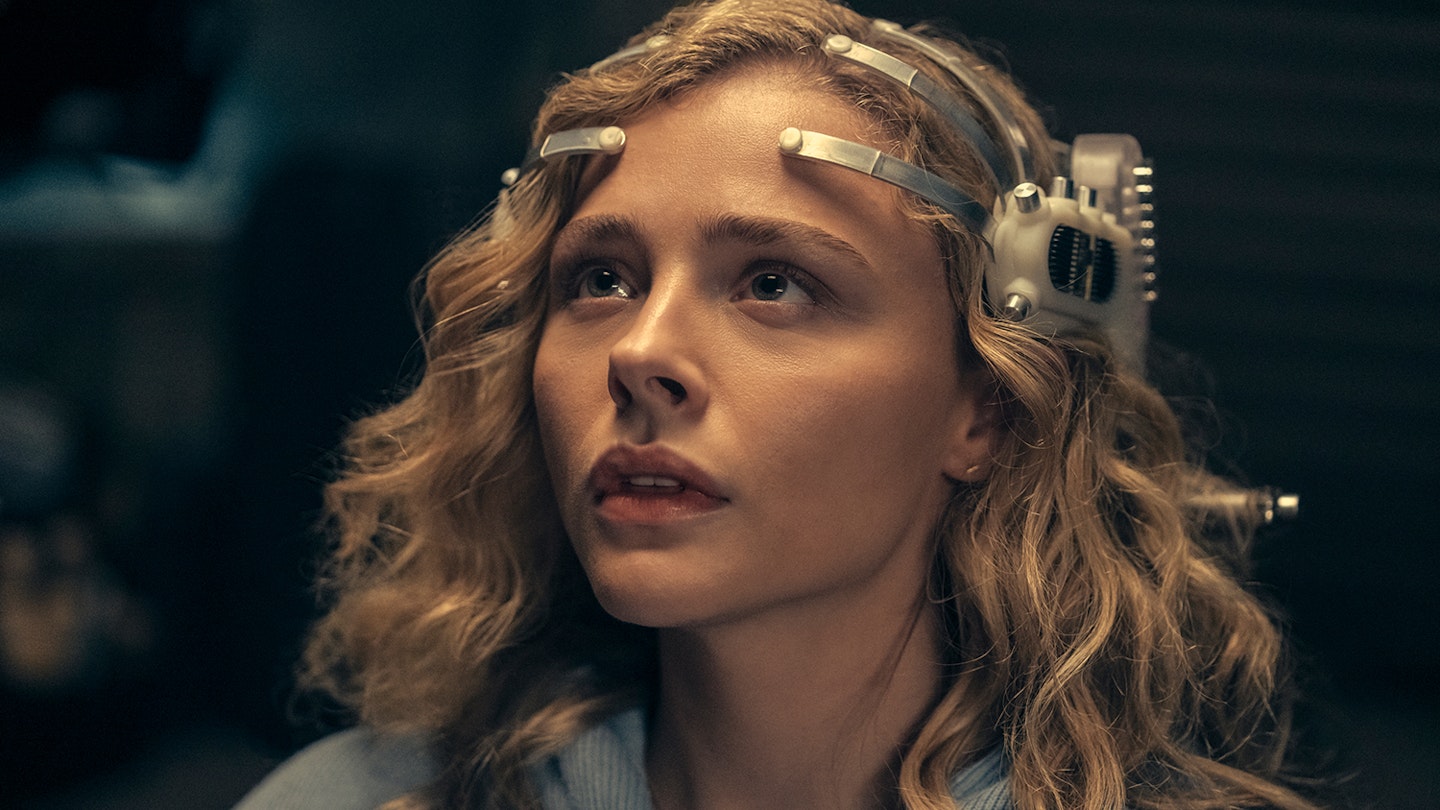Streaming on: Prime Video
Episodes seen: 3 of 8
With its sanitised, Reiss-tailored vision of our future, glossy white androids and ruminations on what is and isn’t real, it doesn’t take a particularly close inspection to discern the pedigree of this latest sci-fi from Westworld creators Lisa Joy and Jonathan Nolan. The first fruits of their new creative partnership with cash-splashing streamer Prime Video, The Peripheral is a (rather loose) adaptation of William Gibson’s 2014 novel — the author’s return to the cyberpunk genre he pioneered, after a 15-year hiatus — adapted and overseen by A Simple Plan writer Scott Smith.

Two intertwining narratives form the story’s spine, each depicting a starkly different projection of what awaits us in the future. In one, we see a rural quarter of North America where jobs are scarce and the only thriving industry is that of the local meth-lord. There, Chloë Grace Moretz and Jack Reynor’s siblings care for their sickly mother while scraping by with a side-hustle in online gaming (think Winter’s Bone if Jennifer Lawrence had been a whizz at World Of Warcraft). In the other, further future, a pristine, sparsely populated London plays home to Gary Carr’s fixer, Wilf, and is steeped in corporate espionage, cocktail parties and an overbearing aristocracy (Philip K Dick’s Downton Abbey). Hardcore Gibsonites will note that much of the author’s cutting social commentary and cultural projection has been sidelined, bringing the story’s central murder mystery to the fore.
Some punchy, well-orchestrated action set-pieces liven up the chin-stroking speculation about the nature of reality.
The end-result is a streamlined neo-noir that explores its bifurcated premise to great effect, ping-ponging between futures as Moretz’s Flynne gradually begins to redefine the boundaries of her accepted reality. Some of the sci-fi trappings fall slightly flat — invisible cars and robo-cabs have been done better elsewhere — but others feel fresh and organic in their implementation — sonic knuckle-dusters and synaptically connected special forces soldiers — facilitating some punchy, well-orchestrated action set-pieces to liven up the chin-stroking speculation about the nature of reality.
Flynne is a more generic heroine than her literary counterpart, but Moretz attacks the role with a steely determination, backed — despite some rather upsetting London accents — by a uniformly solid supporting cast. It is, however, T’Nia Miller’s archly evil antagonist who steals the show, radiating quiet menace in every scene and delighting in her villainy while casually floating mortal threats or feeding an underling to a swarm of stroppy bees.
A jargon-heavy sci-fi with not one but two future worlds to digest isn’t going to be to everyone’s tastes, and the occasionally lurid violence (episode one features a scene of ocular trauma that’s not for the faint-hearted) might further give pause. Not to mention the unfortunate fact that a nihilistic hopelessness runs through both timelines, which may not be entirely what we all need right now. Still, despite its Cassandra-like tendencies, The Peripheral is a compelling enough window into another reality that utilises its central premise well; one with a genuinely fresh-feeling take on time-travel that easily sets this apart from lesser techno-fare.
